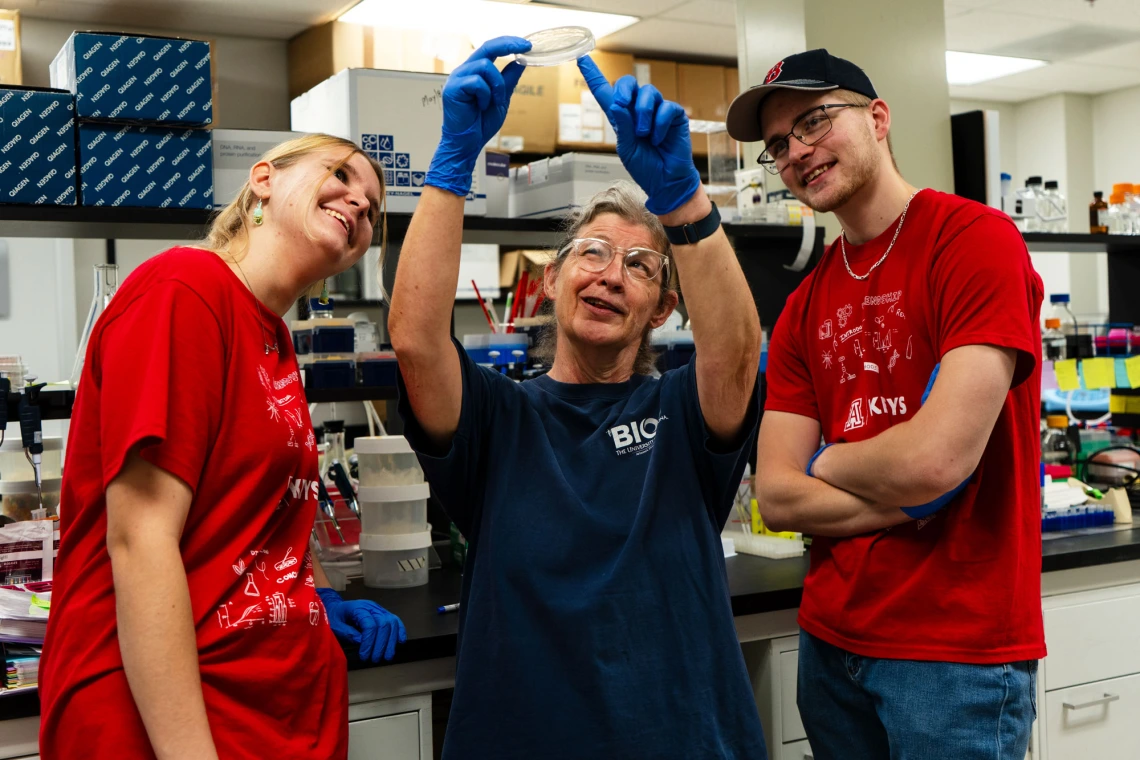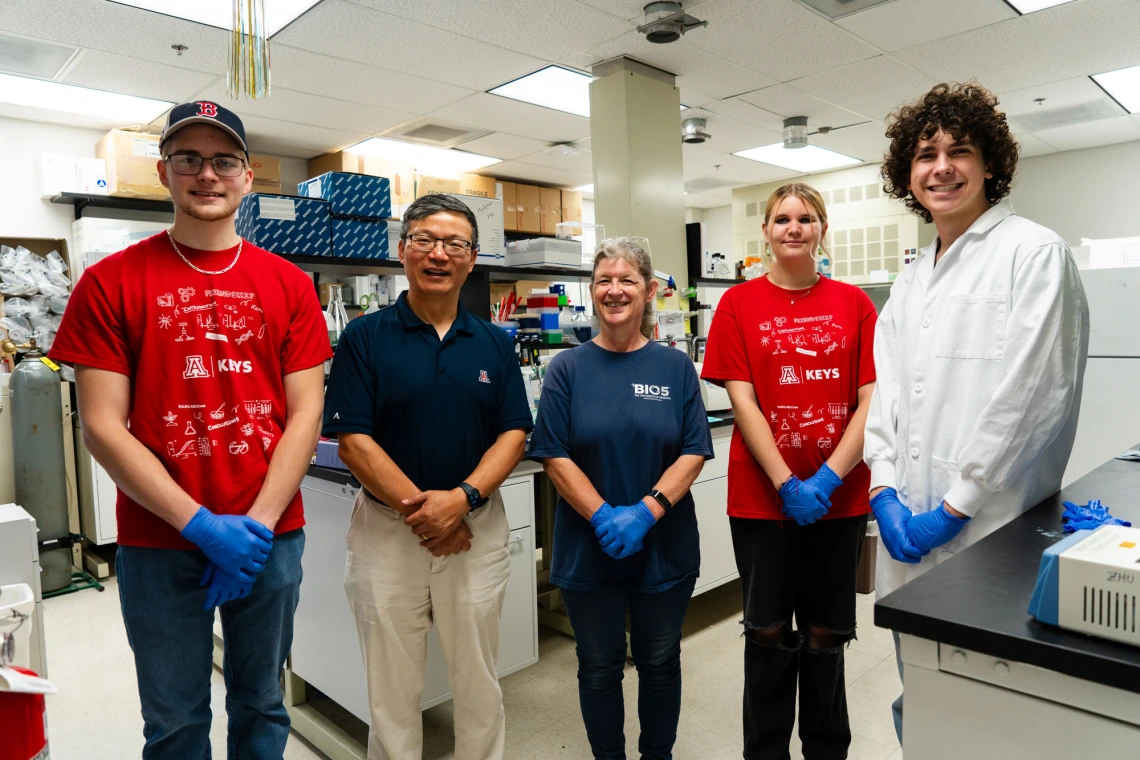Building DNA tools to study the aging brain
Tucson KEYS interns Ana Bradley (she/her) and Tyler Johnston (he/him) explored how aging affects brain function, especially neurodegenerative diseases, in Haining Zhu lab.

Tucson KEYS interns Ana Bradley and Tyler Johnston worked with research scientist Megan Carver to build essential genetic tools that can test how specific genes function.
Emilia Gazman, BIO5 Institute
In the lab of Haining Zhu, professor of pharmacology and toxicology at the University of Arizona R. Ken Coit College of Pharmacy, researchers explore how aging affects brain function, especially neurodegenerative diseases like Alzheimer’s disease and amyotrophic lateral sclerosis (ALS). One major area is understanding which genes in brain cells are active, and how that abnormal activity may lead to disease.
Tucson KEYS interns Ana Bradley (she/her) and Tyler Johnston (he/him) joined the lab this summer to build essential genetic tools called plasmids. These small, circular pieces of DNA can be inserted into living cells to test how specific genes function.
“We consider research and education as an integrated mission that cannot be separated,” said Zhu. “If we train students well, they do great work, and that great work pushes our research forward. It’s a cycle.”

Ana Bradley (left) and Tyler Johnston (right) work in the lab preparing genetic tools called plasmids.
Emilia Gazman, BIO5 Institute
To build these tools, the interns learned advanced techniques like DNA sequence analysis, experimental design, cloning, and lab documentation.
“When you take AP Biology, you hear about genes and proteins. But in the lab, you see how it works and how it might help people someday,” said Bradley. “Whether I go into research or become a pharmacist, I want to help people live better lives.”
The plasmids they created could be used in future experiments to test theories about what goes wrong in brain cells over time.
“They’re building real tools,” said Megan Carver, a research scientist in the lab who mentored the two interns. “When they ask, ‘How do you know that?’ it makes us stop and think. Their questions help us re-evaluate things we’ve taken for granted.”
By creating customized plasmids, the interns are helping the team study how proteins behave in brain cells as they age or become diseased.
“I’ve always been interested in pharmaceuticals,” said Johnston. “This experience helped me see how research connects to drug development. I’d love to contribute to creating a new treatment someday.”

(Left to right) Tyler Johnston, Haining Zhu, Megan Carver, Ana Bradley, and Matthew Boylan.
Emilia Gazman, BIO5 Institute
Take a closer look at how KEYS interns are helping advance real-world research across Arizona.

